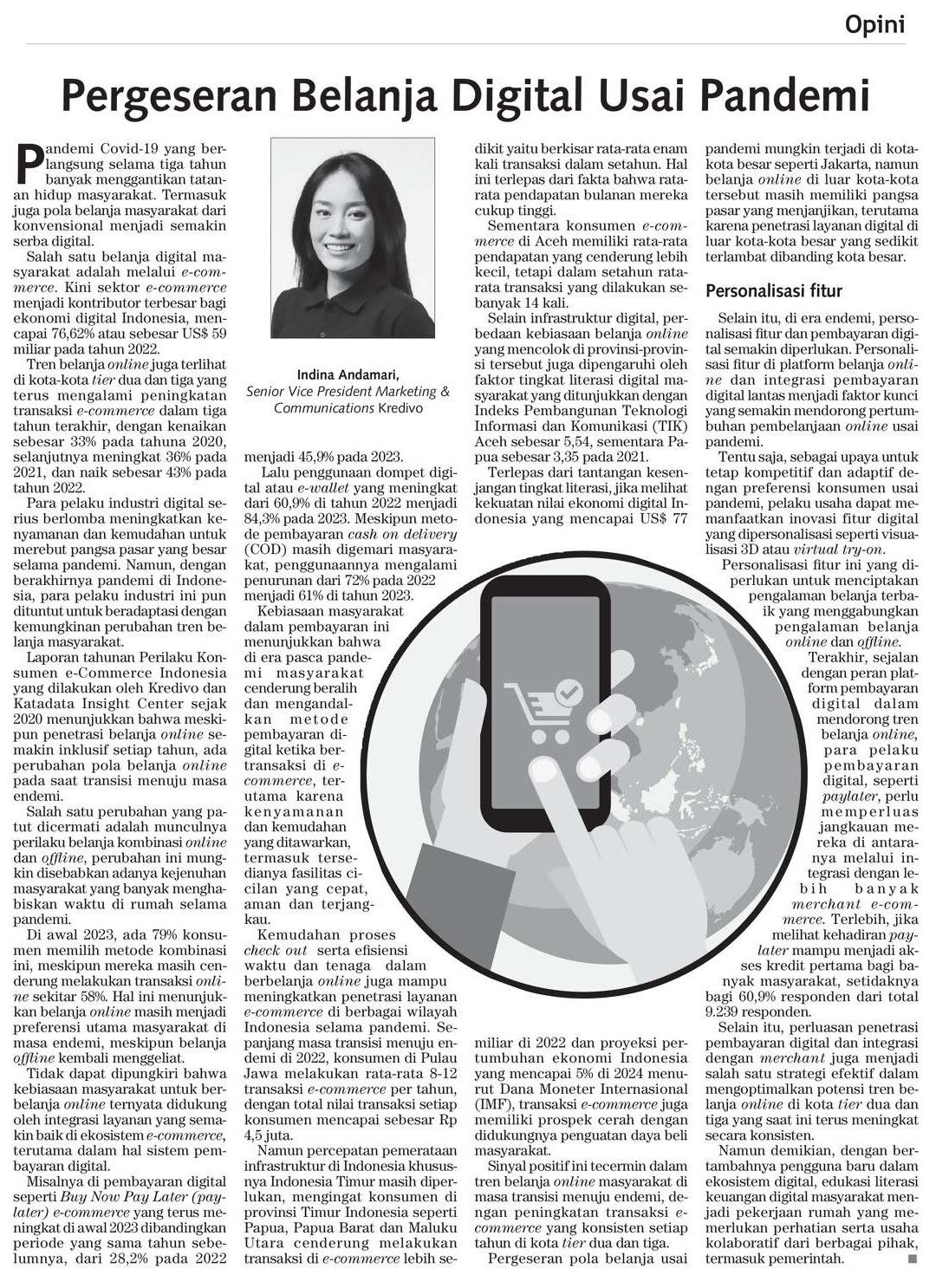Unveiling Post-Pandemic Shopping Trends: Kredivo's SVP Insights

In a recent thought-provoking editorial opinion (op-ed) published in Kontan last Aug 3rd, Indina Andamari, Senior Vice President of Marketing and Communication at Kredivo, delved into the evolving realm of post-pandemic online shopping. With a seasoned perspective and data-driven finesse, Andamari unveiled the dynamic shifts in consumer behavior and their implications for the e-commerce sector.
The three-year-long pandemic has reshaped Indonesian consumer shopping habits, leading to a digital transformation in purchasing patterns. E-commerce has emerged as a dominant player in the nation's digital economy, contributing a significant 76.62% (USD 59 billion) in 2022. Smaller cities, known as tier 2 and 3, have also witnessed a consistent surge in e-commerce transactions, rising by 33% in 2020, 36% in 2021, and 43% in 2022. Industry players are competing to enhance user convenience and capture a substantial market share amidst the pandemic.
A report by Kredivo and Katadata Insight Center since 2020 reveals a shift towards blended online and offline shopping behaviors during the transition to the post-pandemic era, with 79% of consumers opting for this combination in early 2023. Despite this trend, online shopping remains the primary choice, with 58% favoring digital transactions. The rise is attributed to seamless e-commerce services, particularly improved digital payment systems. Digital payment adoption, including Paylater and e-wallets, has surged significantly, while cash on delivery (COD) preference has diminished.
Efficient checkout processes and time-saving online shopping experiences have spurred e-commerce growth across Indonesia, particularly in Java provinces. However, addressing infrastructure gaps, especially in Eastern Indonesia, remains crucial to ensure equitable digital access. The substantial potential of Indonesia's USD 77 billion digital economy, coupled with a projected 5% economic growth by 2024, reflects a bright outlook for e-commerce post-pandemic.
Andamari's op-ed masterfully dissects the intricate dance between changing consumer preferences and the e-commerce ecosystem. Armed with a wealth of data, she charts the course that consumers have embarked upon in their digital shopping journeys. From the surge in demand for sustainable products to the rising appetite for personalized shopping experiences, Andamari's analysis paints a vivid picture of the modern shopper's psyche.
Personalized digital features like 3D visualization and virtual try-ons, as well as expanding digital payment platforms like Paylater, are pivotal for driving post-pandemic online shopping trends. Collaborative efforts, including government involvement, are essential to bolster financial literacy and digital education as the digital ecosystem continues to grow.
In essence, Andamari's op-ed underscores the potency of data-driven insights in shaping the future of e-commerce. As the world adapts to the aftermath of the pandemic, her words provide a navigational compass for industry insiders and marketing professionals, granting a glimpse into the evolving online shopping panorama and arming them with the knowledge needed to excel in this transformative era.